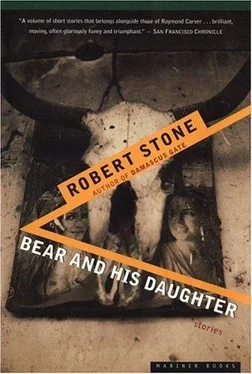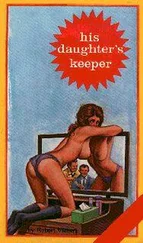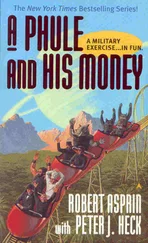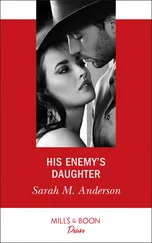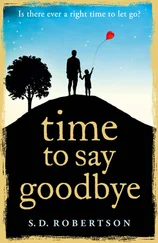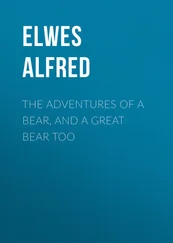Four hundred miles away, during her lunch break, Ranger Rowan Smart drove her khaki-colored state golf cart from the Temple to the trailer she shared with John Hears the Sun Come Up. John was at home doing a wash in the machine. Their trailer had no dryer; they used a clothesline, half concealed like the trailer itself behind a stand of lodgepole pines less than a mile from the monument headquarters. Rangers were paid minimum wage.
“Your father’s coming tonight,” John said when he heard Rowan come into the trailer. “He telephoned.”
“I knew it was today,” Rowan said. She was fair freckled and blond, with a long plain pretty face. She had bright blue wizard’s eyes as striking as her father’s and her face was flushed. “Why didn’t you call me at the Temple?”
“Figured you’d be home.”
She went into the sleeping compartment and began to change her clothes. She was taking off the gray work slacks she wore at the Temple and replacing them with her military gray-striped breeches and the expensive English riding boots she had bought herself years before in Alexandria, Virginia.
“What you want for lunch?” John asked. “I went to Yamoto’s. I got some pretty good tomatoes.”
“No lunch,” she said. She went to the mirror on the bathroom door in the sleeping room and inspected herself in the uniform of Smokey hat and ranger shirt and boots and trooper’s breeches.
“You didn’t eat breakfast. You on a fast or something?”
“I’m on a fast,” she said. “I require a vision.”
“I think you’re doing crank, Rowan.”
“What I need,” she said, “is a drink.” She came to the door of the sleeping compartment and they looked at each other. “Martinis, right? Look, John, I need you to go up to the state store and get us gin and vermouth. I need it for him.”
“I’m working the gate this afternoon. I already got wine. I got steaks in case you want to make him dinner. Anyway,” John said, “he says he’s sober.”
“Wrong,” said Rowan. “Because if he were sober he wouldn’t stop here. He’d give me a miss.” She went back into the compartment and took another look at herself in the mirror. “Just like in the old days. Back to college. If he thought I could get him pot or coke, I’d see him. But if he was being Professor Straight and Narrow it was like hello goodbye Rowan, my dear. All right,” she said, “wine’ll do. I hope it’s good, because he knows his wine.”
“It’s Georges Deboeuf red, the large size.”
“That’ll do,” she said. She opened an aluminum drawer and took an envelope out and dipped her forefinger inside the flap and licked it.
“Let him be,” John told her. “The past is past. I don’t think he always remembers what happens on his trips.”
“How can he not remember?” she asked.
“They’re gonna get you, Ro,” John said. “Peterson is gonna spring a random drug test on your ass. Anyone who knows you can tell when you’re on crank. You figure to do it on mounted patrol?”
“No,” Rowan said, chastened. “Never happen again.”
Once, loaded, not on enforcement but on what they called at the monument “riding fence,” she had ridden a cow pony half to death in a burst of romantic enthusiasm.
When she came out of the bedroom, John Hears the Sun Come Up looked at her in her boots and striped breeches.
“Put those on for him?”
“Who?” she asked. She was without any ability to conceal her intentions or schemes. “Who? Peterson?”
“Not Peterson,” John said. “You know who.”
“Yeah, I did,” she said after a moment. “I did, so what? He likes them. He likes me to wear them.”
“Well,” John said, “you’re thirty-one years old.”
“Aw, shit,” Rowan said sweetly, “you remembered.”
By afternoon, Smart had gone far northward, though he was still among the dry lakes, salt flats and badlands. Soon he began to see aspen groves and chamisa and smell the sage. Presently there were red rocks and buffalo grass, pinon and juniper. He began to think of Rowan. She was his wildflower outlaw, Girl of the Golden West. She had been born in Mendocino to a radical actually on the lam, a child of the old days. During the Patty Hearst affair the FBI had hassled him about the whereabouts of Rowan’s mother. But at that time he had not known where either of them were. He had been with his wife in Boston and his other legitimate children, whose day-to-day adventures were his life then.
The FBI had been interested in him too, back then. His work had been so popular in the Soviet Union in those days. As a young man he had worked as a lumberman in forests not far to the west of his present road; Soviet publishing houses had always loved his poems about saws whipping back and sweat freezing in your hair, the crust of a frozen marsh collapsing underfoot, the absurdities of religion. And of course, in that era, the anti-Vietnam War poems. He was one of the American poets to whom the Soviet Writers’ Union paid royalties, and he had often gone over there, and to Eastern Europe, to read. He had had many Russian women.
At last Smart crossed the first clear-running river, and he pulled off the road to go and stand beside it and listen to its tumbling run and smell the sage. Salmon?
With Moby-Dick himself, they shared the Japan Ground
And now under the sky of the Tanana, two thousand miles from there, two hundred from the salt, in this clear baptismal water, they’re home
To claim their lay, like the Nantucket whalers, their fishers’ portion.
They make me feel like cheering.
Hearing the roar of a truck somewhere back along the two-lane road, bearish Smart, weeping for his lost poem, hurried in embarrassment back to his car.
Back up at park headquarters, across a small parking lot from the rail to the Temple, Rowan found the county sheriff, Max Peterson, waiting beside the glass counter of the bookshop. Phyllis Stowe, the sales clerk, had been minding the store. She and Peterson had been gossiping. They both stopped talking to watch Rowan as she came in.
“Here’s my new police person,” Peterson said to Phyllis with a wink. In his right hand he was holding a gun belt with a holstered pistol on it. He wore a big.357 in a silver-decorated Mexican holster on his own belt. “She look tough enough to you?”
“She’s mighty tough,” Phyllis said, and seemed not to be joking.
“Come on, tiger,” Sheriff Peterson said to Ranger Smart. He motioned her toward a small office off the headquarters lobby that said PRIVATE on the door. When they were both inside he closed the door. He was a huge man, six five, with massive shoulders and a bald shaven head to which he affected to apply wax. He had fierce curling mustaches which he waxed as well.
“Here you go,” he said. He took the pistol from the belt he was holding and handed it to her barrel toward the ceiling. “You gotta sign for it. And for the bullets.”
Rowan took the pistol, swung it toward the closed window and sighted down the barrel, gripping it with both hands.
“Oh, wow,” she said. “A.357! Heavy shit. Who can I shoot?”
“I can see,” Peterson said, “where we got a lot of review ahead of us. I mean like a massive reorientation procedure has to accompany this assignment for you.”
“Nonsense,” Rowan said. “Absolutely not.” She set about inserting the cartridges in the revolver’s chambers. “I’ve done this before, Max, remember? I was an enforcement ranger for seven months in ‘94.” She pointed the weapon double-handed toward the window again, pivoting so that it could cover the arc of the visible park outside. Peterson gently took the weapon back, handed her the belt and watched her buckle it on.
“First off, Rowan,” Peterson said, “this here weapon is not a.357 Magnum.”
Читать дальше
